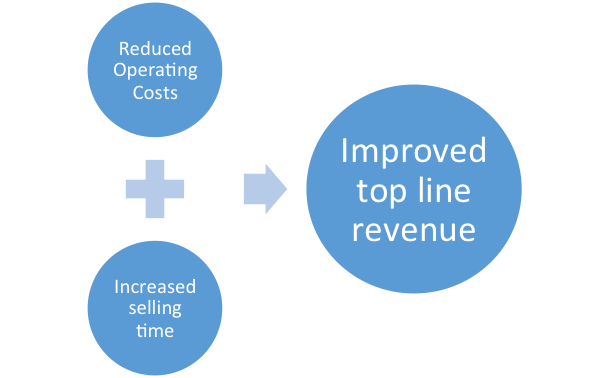The return on investment (ROI) of an incentive compensation management system continues to be a debatable topic with various objective and subjective parameters that require inspection before making a business case. Any sales organization looking to improve its incentive compensation management capability needs to justify the investment into new solutions. Superficially, an incentive compensation solution seems like software that would just be 'good to have for an organization, but scratching under the surface reveals several opportunities for cost savings and increased revenue.
Several factors need consideration when justifying investment into an incentive compensation solution. An inexhaustive list is:
- Delay in product rollouts (Yes, product rollouts have been halted/delayed due to sales compensation system incapabilities)
- Overpayment & underpayment rates
- Existing process inflexibility to plan changes. Solutions should always fit business needs, businesses should not compromise due to solution limitations.
- Frequency of late payments
- Attrition rate
- Dispute resolution turnaround time
- Availability of data for analytics and management reporting needs
- Audit and compliance risk
- As with any ROI estimation, let's review the costs associated with these factors and the tangible gains we can achieve from the proposed investment in an efficient ICM solution.
Overpayments
Estimates suggest that overpayments amount to approximately 3-8% of total incentive compensation spent. These overpayments generally go unreported by the beneficiary salespeople but still create an environment of distrust. This is especially pronounced in spreadsheet-based solutions. Recent studies suggest that a whopping 88% of spreadsheet models contain errors. An ICM system with automated validations and an intuitive workflow can help reduce these overpayments and recover these losses. By and large, these cost savings alone can act as justification to move from spreadsheet-based systems to software as a service model.
Underpayments
Incentive compensation underpayment errors cause salespeople to distrust existing ICM solutions and encourage them to create their own parallel processes to calculate their ongoing commissions affecting net selling time. In addition to these shadow accounting practices, underpayment errors create increased disputes resulting in a loss of productivity all around. It's estimated that the opportunity cost from this amounts to about 5-10% of compensation spent. These opportunity costs, when accumulated across the entire salesforce, become significant.
Attrition rate
Demotivation and reduced engagement of top performers arising from incorrect or delayed incentive compensation results in higher attrition rates. This not only piles on additional administrative costs such as legal, recruitment, training, and sales personnel interview time but also results in loss of revenue due to vacancy and required ramp-up time for new hires. This financial impact of attrition is usually underestimated. In general, it takes about $50K as the cost to hire one experienced salesperson, while the loss of revenue varies depending on the industry between $100K-$500K. For a medium-sized salesforce, a 2% reduction in attrition rate can mop up millions in cost savings.
Administration cost
In a spreadsheet-based ICM system, sales compensation analysts spend the majority of their time validating inputs and recalculating outputs and cross-checking against parallel calculations. This reduces result analysis time and hinders value-added analytics that can reveal great business insights. Reduced result validation time forces analysts to calculate manual adjustments to account for calculation errors. With the implementation of an automated ICM solution, administration costs can be reduced significantly, and the time saved can be used for supporting ad-hoc analytics. This also helps in reducing reliance on a few analysts maintaining the worksheets and supporting business continuity. An intuitive workflow can help streamline the entire business process with visual documentation.
Timely Insights
An automated ICM solution also helps in timely actionable insights to drive business decisions. It helps the analyst in identifying subtle motivational issues with the existing plan and supports the sales leadership in course correction. Such timely changes can drive the overall alignment of salesforce behaviour with strategic corporate business objectives. While it may seem like an isolated business process in the vast sales domain, the ICM systems act as a pivot around which a detailed sales analytics practice grows. Hence insights gained from sales compensation systems have a greater impact on overall sales operations.
Conclusion
Implementing an automated ICM solution results in reduced operating expenses and increased net selling time, which boosts top-line revenue. The ICM solution reduces ambiguity in incentive compensation calculations and improves the reliability of your plans. More importantly, an ICM solution creates an environment of trust reducing attrition rates and boosting salesperson morale. It also provides flexibility to implement new ideas in a timely manner to stay up to date with the dynamic business environment.

Thoughts? Did we miss anything significant? Do contact us at Incentius











